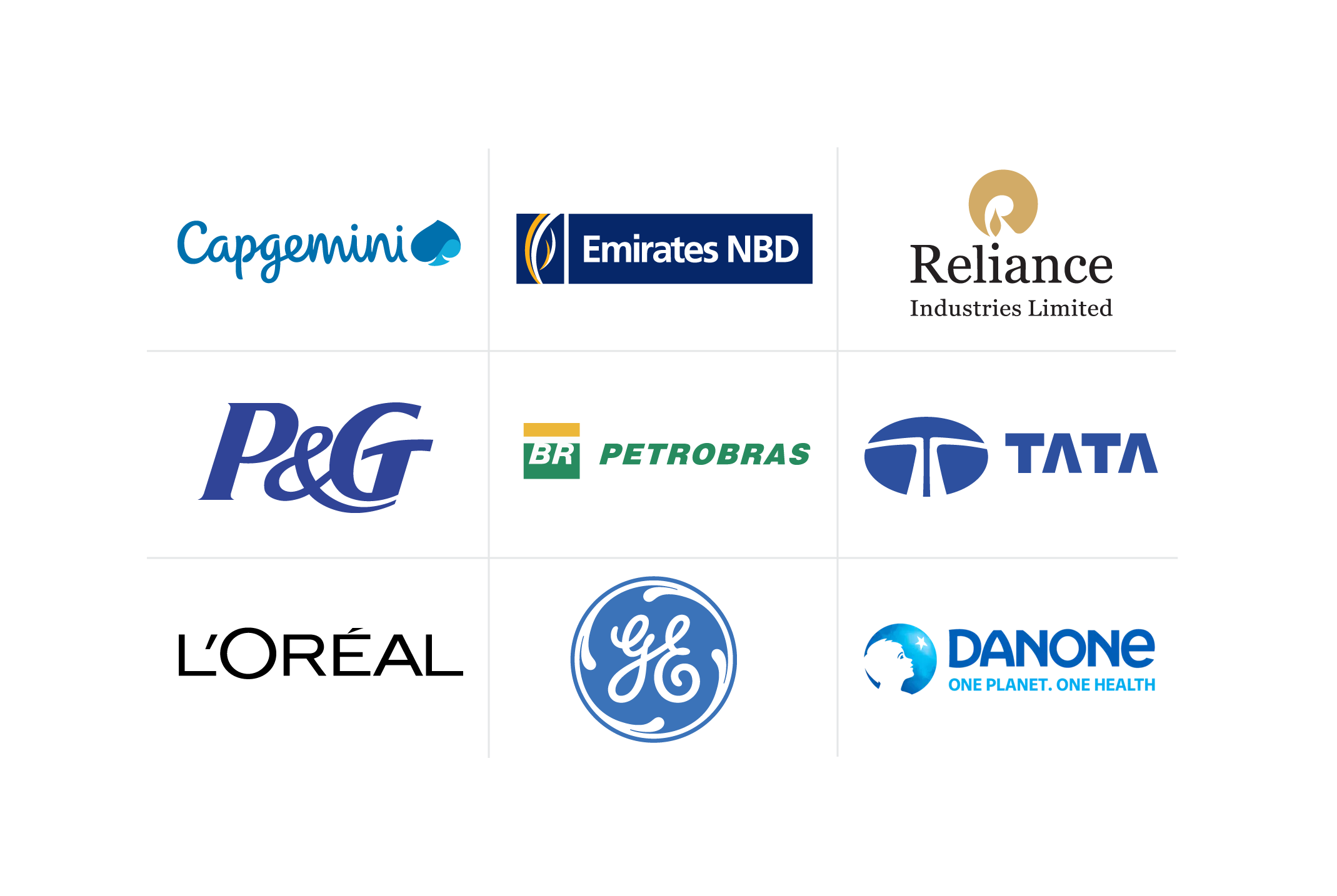The Power of Industry Micro-Credentials
Have you ever encountered a new concept and wished someone could quickly explain it using a few examples? Micro-credentials are the answer.
![[Featured Image] A businesswoman sits at a computer in her office, browsing options for industry micro-credentials.](https://d3njjcbhbojbot.cloudfront.net/api/utilities/v1/imageproxy/https://images.ctfassets.net/2pudprfttvy6/5pQWlFawUp0FFHZ4LMdvBO/1b6a1fffaec17a90102dc219afb3fecc/GettyImages-2042527409.jpg?w=1500&h=680&q=60&fit=fill&f=faces&fm=jpg&fl=progressive&auto=format%2Ccompress&dpr=1&w=1000)
Micro-credentials are an innovative way for professionals to personalize their development journey and stay up-to-date on the latest methodologies within their field. While traditional educational programs were typically expensive and time-consuming, micro-credential programs offer a flexible, targeted, and time-effective approach to staying competitive. Whether you’re a professional or a manager looking to enhance the skill set of your employees, micro-credentials are becoming an essential aspect of the corporate landscape. According to a survey of leaders at 500 organizations, 95 percent believe that micro-credentials can benefit the corporate environment [1].
Read on to explore the significance of micro-credentials within an industry, how they align with industry demands and corporate training, and how to overcome challenges with adopting this learning style.
Unraveling the significance of industry micro-credentials
Today’s work environment is fast-paced, meaning that traditional degree and qualification programs don’t cover all of the skills needed to remain at the forefront of your field as a professional. However, micro-credentialing can solve this issue. To stay current, professionals need to diversify their skill sets over time, and micro-credentialing is one method for accomplishing this.
What are micro-credentials?
Micro-credentials are specialized certifications that show competency in a specific skill or practice. Unlike a degree, professionals complete micro-credentials, like Professional Certificates on Coursera, in a short timeframe, providing you with a targeted learning experience that directly addresses the immediate needs of your industry.
Micro-credential programs are a great way to quickly upskill in certain areas. Most programs are designed to be completed in a few days or weeks. Many of these courses are online, but in some cases, they may be in-person or hybrid. After completion, professionals receive a badge or certificate in recognition of their competency in the area, acting as verification of their skill development.
The role of industry micro-credentials in corporate training
In many cases, industry micro-credentials relate to emerging technologies or methodologies, helping professionals fill gaps in their skill set at a much faster pace as industries continue to evolve. This approach aligns with the concept of skills-based workforce planning, placing emphasis on the actual skills of your employees rather than their formal qualifications. Instead of receiving a certification simply for attending a training session, your employees must demonstrate practical proficiency to receive the certificate.
Micro-credentials are especially popular in business fields, as industry demands change quickly and employees need to continually upskill to remain competitive. Your organization can offer personalized micro-credentials to employees depending on their current role and career goals, helping your employees progress toward more advanced competencies without committing to a longer educational process. By fitting in micro-credentialing alongside day-to-day tasks, companies can continually train and upskill their employees, tailoring learning plans as needs shift.
Identifying key industry micro-credentials for professional development
Key micro-credentials in areas such as information technology, analytics, and workplace skills are typically a quick and cost-effective way for professionals to expand their knowledge and learn new skills, making them a great choice to complete alongside professional responsibilities. The following Professional Certificates are examples of industry and skill-specific micro-credentials.
Information technology
Data analytics
Workplace skills
Determining essential industry-specific micro-credentials
Micro-credential programs are popular in a variety of high-demand disciplines, including accounting, finance, supply chain, project management, leadership, analytics, and more. However, evaluating your needs to choose the right micro-credentials when deciding what micro-credentials to pursue or which to offer your employees and assessing emerging industry trends can help you align your workforce development with new technologies and advancements.
You can put this into practice by looking at the most recent workforce surveys and statistics. For example, according to a 2024 survey by Upwork, the most in-demand skills within sales and marketing are social media marketing, search engine optimization (SEO), as well as sales and business development. Furthermore, the most in-demand skills in accounting and consulting are accounting, bookkeeping, and talent sourcing [2]. If your organization has an online presence, you might use this information to guide micro-credentialing programs related to social media and search engines, equipping your workforce with the most in-demand skill set.
Micro-credentials are not only for technical skills but can also focus on human skills. According to the 2020 World Economic Forum (WEF) Future of Jobs Report, the integration of artificial intelligence and automation will most likely cause companies to restructure their workforce, shifting the professional focus of employees toward decision-making, reasoning, management, and similar tasks [3]. As this becomes a reality, choosing micro-credentialing programs surrounding these skills may help you facilitate this transition.

Aligning micro-credentials with organizational goals
For professionals looking to remain at the cutting edge of their discipline, it’s important to align micro-credentials with specific company objectives and industry trends. These credentials not only differentiate you from the competition but also equip you with the skills needed to succeed in a modern workforce.
Micro-credentials can reinforce a skills-first culture within your organization. As more technological innovations integrate into business practices, micro-credentials offer a practical solution to cater to the demand for a new set of skills among employees. For example, as your company digitizes its operations, you can offer employees micro-credentials in data analytics, cybersecurity, and digital marketing to proactively address the new skills necessary to accompany this change.
Stackable micro-credentials
In some cases, emerging skills may require more training than a singular micro-credential program can offer, which is called stackable micro-credentials. These allow your employees to take on larger development goals in bite-sized chunks, focusing on the growth of smaller skills most relevant to their current job demands.
Over time, professionals can stack individual micro-credential milestones and progressively build competency. In some cases, these micro-credentials can even lead to a more comprehensive qualification, such as a degree or an advanced professional certificate.
Benefits of implementing micro-credential programs for employers
As an employer, finding ways, such as micro-credentials, to continually strengthen your workforce and build engagement with your employees can enhance workforce retention and improve organizational output. By utilizing micro-credentials, you:
Increase employee engagement by providing opportunities for growth and development
Proactively track and fill skill gaps within your company
Attract top talent by offering opportunities for in-house upskilling
Create a dynamic workforce, placing employees where they have the strongest skills
Promote an environment of continuous learning
Help employees find a cost-effective, fast way to build targeted skills
Overcoming challenges in implementing industry micro-credentials
While the benefits of micro-credentials are clear, your organization may face challenges, such as ensuring the quality and recognition of credentials and representing micro-credential achievements in a way that employers recognize. Another challenge may be that the organization is not logistically prepared to implement the training.
Overcoming these challenges requires your organization's commitment to continually evaluating and adapting professional development strategies, monitoring employee progress, recognizing non-traditional qualifications, and adopting a skills-first approach in the workplace.
Ensuring ROI and tracking the impact of micro-credentials
When implementing micro-credentialing in the workplace, you’ll likely want to ensure your organization experiences the expected benefits and make changes if it does not. You can measure the return on investment (ROI) of employee learning and development initiatives by taking advantage of detailed analytics and reporting features available on learning platforms such as Coursera.
By tracking metrics like course completion and skill improvements, you can see tangible evidence of how micro-credentials are contributing to individual and organizational growth.
Getting started with Coursera
By partnering with the Coursera learning platform, you can offer access to cutting-edge knowledge and coursework designed to meet evolving needs within your industry. This opens the door to continuous learning and development for your employees with flexible pacing, varied course options, and a style that fits alongside daily work life.
With Coursera for Business, you can train teams across your organization in the skills that matter most in today’s digital economy. Your employees will gain access to content from 350+ leading universities and industry partners, where they can build real-world experience with innovative skills, tools, and technologies while earning globally recognized credentials. Our customizable, scalable learning solutions balance workplace and technical skills training in diverse formats, from video clips to guided projects and Professional Certificates. Accelerate your digital transformation and equip employees to drive growth with Coursera.
Article sources
UPCEA. “Employer Demand for Microcredentials On the Rise, New Study From UPCEA and Collegis Education Reveals, https://upcea.edu/employer-demand-for-microcredentials-on-the-rise-new-study-from-upcea-and-collegis-education-reveals/.” Accessed June 30, 2025.
This content has been made available for informational purposes only. Learners are advised to conduct additional research to ensure that courses and other credentials pursued meet their personal, professional, and financial goals.

